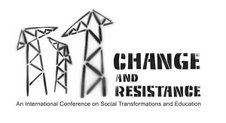Magdalena Rek
Institute of Sociology
University of Lodz, Poland
During last 17 years post-soviet societies have experienced deep changes. The transition from centrally-planned to free-market economy was accompanied by the emergence of mass unemployment, pauperization of diverse social groups and categories and growing inequalities in various spheres of social life. In consequence of transformation life opportunities of young generations have grown considerably, nevertheless this fact could not be treated as beneficial for all individuals who grow up during this period. Positive or negative assessment of social and economic changes depends on various factors, but particular attention should be paid to social policy schemes (in the field of education, labour market and welfare), as instruments to increase social mobility. Post-socialist states had to redefine their social policy regimes, which were unable to face entirely new challenges.
The presentation will be based on results of the PROFIT (full title: Policy Responses Overcoming Factors in the Intergenerational Transmission of Inequalities) research project, realized in the frames of 6th Framework Programme of European Union. The aim of the project is to conduct multidisciplinary comparative study on intergenerational inheritance of social inequalities in eight European countries. The outcomes can give and answer to the question about the most effective measures which can be used to improve social mobility.
One of the stages of the project was to identify the relative importance of different factors affecting social mobility of individuals.
The main empirical base for the presentation are in-depth interviews carried out in Poland, Bulgaria, Lithuania and Estonia with young adults (aged 25-29), who originated in low status families and live in middle size, economically deprived towns. Some of them inherited parents social position, but others experienced upward social mobility. The idea of the paper is to identify the determinants behind critical decisions concerning the transition from obligatory school to school of higher level, from school to work and from parental family to that established of its own. Of particular interest is importance of policies and informal networks (family, peers, significant “others”) at transition points in a life course of an individual.
Findings of the interviews will be supplemented by other data collected for the purposes of PROFIT project.
Subscribe to:
Post Comments (Atom)

No comments:
Post a Comment